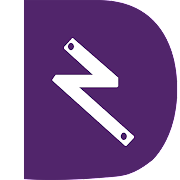In the ever-evolving world of education, where details flows abundantly and access to expertise is only a click away, student-driven encyclopedias are becoming a vibrant tool in the learning procedure.

These platforms not only offer pupils with a database of details but likewise motivate them to contribute, edit, and curate material, promoting a joint and interactive learning environment.
As educational standards change towards more participatory and inclusive versions, the idea of student-driven encyclopedias personifies this change. These systems encourage students to end up being energetic individuals in knowledge development, bridging the gap in between typical book discovering and modern electronic sources.
The Idea of Student-Driven Encyclopedias
Student-driven encyclopedias are electronic platforms where pupils jointly gather, confirm, and distribute information on a broad selection of subjects. Unlike conventional encyclopedias, which are frequently written by experts, these systems leverage the collective efforts of students to produce a detailed body of understanding.

At their core, student-driven encyclopedias are made to grow vital thinking, research skills, and digital proficiency among students. By participating in the process of material production, pupils find out to browse and assess information critically, abilities that are necessary in today’s information-rich society.
Moreover, these systems serve as an area for pupils to explore their passions and share their expertise. This democratic strategy to understanding creation guarantees that a varied range of perspectives and voices are represented, improving the learning experience for all participants.
- Students get hands-on experience in research study and content creation.
- Motivates collaboration and peer interaction.
- Promotes a deeper understanding of topic.
- Fosters inclusivity and diversity in knowledge depiction.
Fundamentally, student-driven encyclopedias change students from easy recipients of information right into active contributors, instilling a feeling of possession and duty in their academic journey.
Advantages of Student-Driven Encyclopedias
One of the major benefits of student-driven encyclopedias is the advancement of vital 21st-century abilities. As pupils engage in the process of content creation, they hone their vital reasoning, electronic literacy, and communication abilities, all of which are critical in today’s interconnected world.
In addition, these systems motivate a collaborative discovering setting, where trainees can work together to verify info, argument educational encyclopedia different perspectives, and co-edit write-ups. This peer-to-peer communication not only boosts discovering end results but likewise cultivates a sense of community and common respect among trainees.
Furthermore, student-driven encyclopedias use a system for showcasing pupil work. As trainees contribute to the encyclopedia, they develop a profile of their research study and writing, which can be very useful for further academic and professional searches.
Obstacles and Limitations

Despite the numerous benefits, student-driven encyclopedias also encounter specific challenges. Making sure the precision and integrity of details is paramount, as these platforms rely on payments from pupils who might not yet have expert-level understanding.
- Preserving content quality and precision.
- Providing appropriate supervision and advice.
- Making certain fair gain access to and inclusivity.
To mitigate these difficulties, lots of student-driven encyclopedias apply a system of checks and balances, where content is reviewed by educators or specialists prior to publication. This guarantees that the info presented is both precise and credible, supporting the integrity of the platform.
The Future of Student-Driven Encyclopedias
As modern technology continues to advance and the landscape of education develops, the possibility for student-driven encyclopedias is substantial. These platforms have the capacity to not only complement conventional instructional sources but additionally redefine the method understanding is obtained and shared.
In the future, we may see student-driven encyclopedias incorporating more advanced innovations such as expert system and machine learning to enhance material curation and customization. Furthermore, they might expand past textual info to consist of multimedia web content, providing an extra immersive knowing experience.
Empowering the Future Generation
Student-driven encyclopedias hold the promise of encouraging the next generation of students. By putting students at the helm of understanding development, these platforms motivate long-lasting discovering, inquisitiveness, and intellectual freedom.
Finally, as instructional systems remain to innovate, student-driven encyclopedias stand as a testament to the power of collaboration and the importance of trainee firm in the knowing procedure. By accepting these platforms, we open the doors to an extra comprehensive, interesting, and vibrant academic experience for all.
